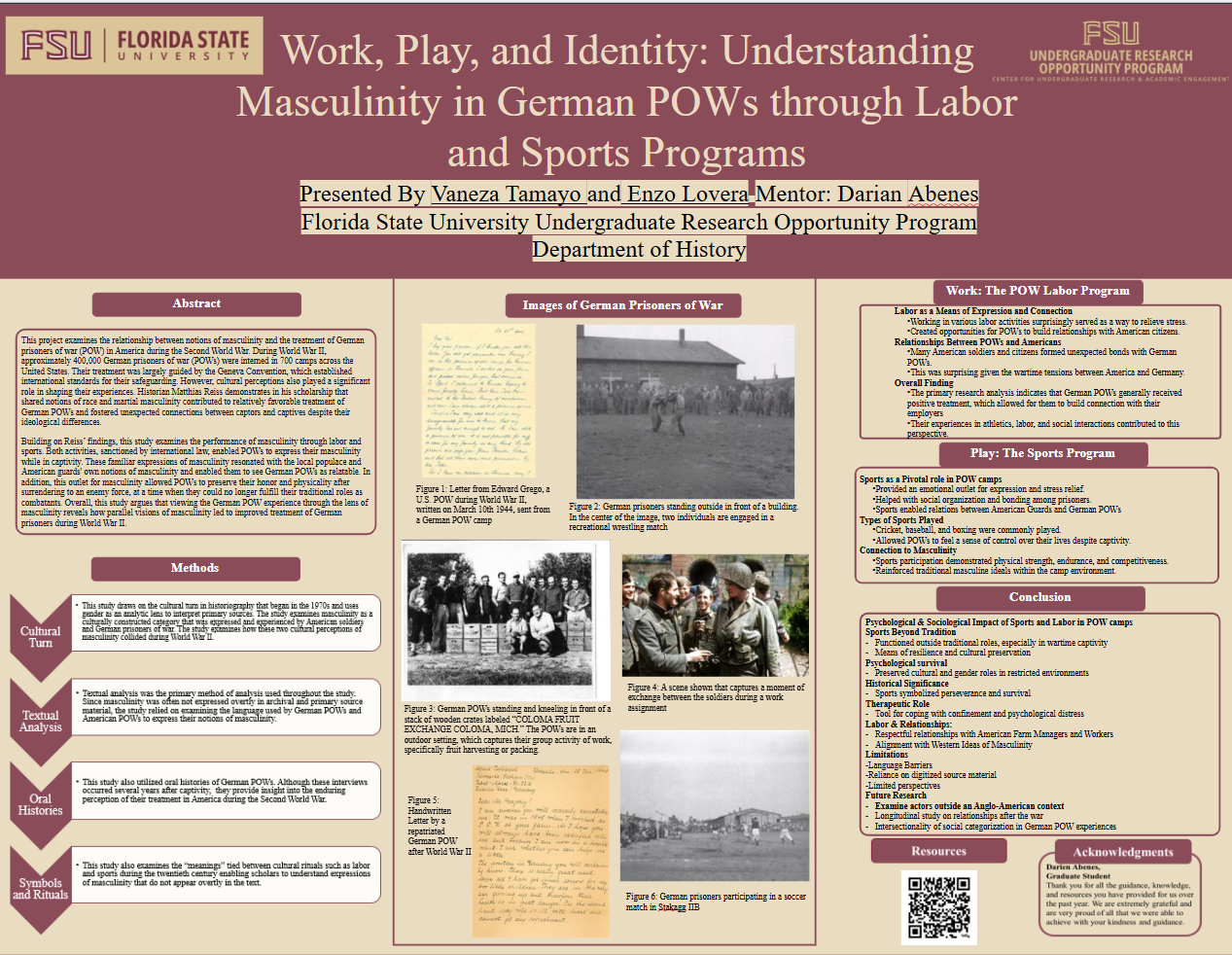Research Symposium
25th annual Undergraduate Research Symposium, April 1, 2025
Enzo Lovera Poster Session 1: 9:30 am - 10:30 am / Poster #252

BIO
I am currently a freshman studying Finance and hoping to double major in Accounting as well. I am from Dallas, Texas and hope to become a consultant after graduating. Some of my research interests include History and Government.
Work, Play, and Identity: Understanding Masculinity in German POWs through Labor and Sports Programs
Authors: Enzo Lovera, Darian AbenesStudent Major: Finance
Mentor: Darian Abenes
Mentor's Department: Department of History Mentor's College: College of Arts and Sciences Co-Presenters: Vaneza Tamaya
Abstract
This project examines the relationship between notions of masculinity and the treatment of German prisoners of war (POW) in America during the Second World War. During World War II, approximately 400,000 German prisoners of war (POWs) were interned in 700 camps across the United States. Their treatment was largely guided by the Geneva Convention, which established international standards for their safeguarding. However, cultural perceptions also played a significant role in shaping their experiences. Historian Matthias Reiss demonstrates in his scholarship that shared notions of race and martial masculinity contributed to relatively favorable treatment of German POWs and fostered unexpected connections between captors and captives despite their ideological differences.
Building on Reiss’ findings, this study examines the performance of masculinity through labor and sports. Both activities, sanctioned by international law, enabled POWs to express their masculinity while in captivity. These familiar expressions of masculinity resonated with the local populace and American guards' own notions of masculinity and enabled them to see German POWs as relatable. In addition, this outlet for masculinity allowed POWs to preserve their honor and physicality after surrendering to an enemy force, at a time when they could no longer fulfill their traditional roles as combatants. Overall, this study argues that viewing the German POW experience through the lens of masculinity reveals how parallel visions of masculinity led to improved treatment of German prisoners during World War II.
Keywords: Masculinity, German, POW, Prisoners

